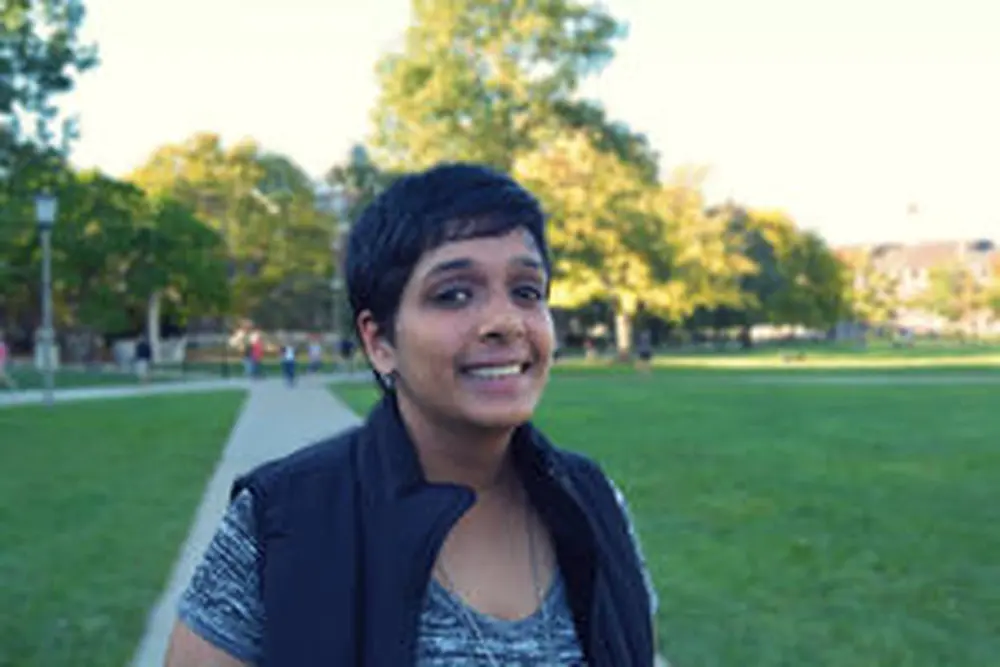
The Department of Gender and Women's Studies is pleased to announce that Shwetha Delanthamajalu (Sociology) will receive the 2020 Marianne A. Ferber Scholarship for her dissertation proposal, "Moral panics and policing of sex and love in the time of Hindutva." The award is given to the most outstanding dissertation proposal related to Gender and Women's Studies; secondary considerations include the student's commitment to the Gender and Women's Studies. Delanthamajalu has been a teaching assistant in GWS 100, and is currently a teaching assistant in GWS 202.
Abstract: Moral panics and policing of sex and love in the time of Hindutva
In this dissertation project, I raise questions about the links between contemporary conceptions of Hindu morality, Indian culture, and nationalism. Since the election of Prime Minister Narendra Modi in 2015, India has seen a rise in what I call “moral policing,” which aims to regulate citizens’ behavior by invoking Hindu morality and Indian culture. This moral policing, I argue, is interconnected with anti-Muslim and anti-immigrant sentiments. I situate my research in the southern city of Bangalore, an understudied site for these forms of policing, to understand how the discourses of moral policing and Hindu nationalism travel outside of other privileged cities, like New Delhi and Mumbai. I have three main research questions. First, how does moral policing play out in Bangalore? Second, how do young women and LGBT people experience and negotiate moral policing in their everyday lives? When pre-marital sex, intercaste, inter-religious relationships, and same-sex practices and relationships have violent consequences, how do young people foster love, sex, and solidarity? Third, how are these initiatives fostering a new understanding of Hindu nationalism? I use a mixed-method approach in my research guided by transnational feminisms and queer theory. I will conduct discourse analysis of written and audio-visual texts as well as carry out ethnographic fieldwork including in-depth interviews with young gender non-normative people. This research will contribute to studies in Transnational Gender and Sexuality and as well as Nationalism to help uncover the new ways today’s Hindu nationalism functions in the global south.